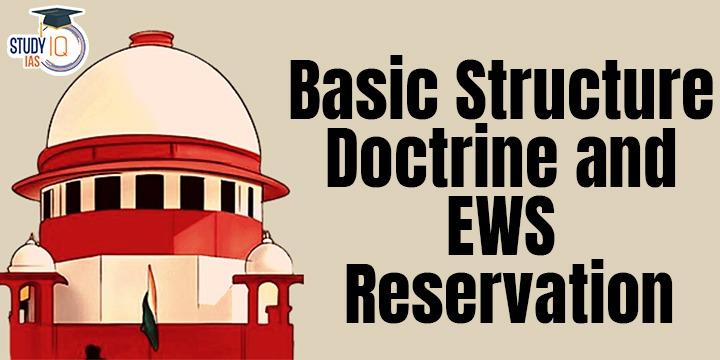Table of Contents
Basic Structure Doctrine: About
- Article 368: It empower Parliament to amend the Constitution.
- Constitution of a country is the fundamental law of the land.
- It is based on this document that all other laws are made and enforced.
- Under some Constitutions, certain parts are immune from amendments, and are given a special status compared to other provisions.
- Role of Judiciary: Courts are empowered under our Constitution to invalidate not only executive orders, but also legislative enactments that violate any part of the Fundamental Rights guaranteed in Part III of the Constitution (Bill of Rights).
- Supreme Court in in Kesavananda Bharati judgement (1973), upheld the amending power of Parliament but added a caveat that, no amendment was permissible if it altered “the basic structure or framework of the Constitution”.
- However, court did not define the ‘Basic Structure Doctrine’, and only listed a few principles — federalism, secularism, democracy — as being its part.
- Evolution of Basic Structure Doctrine: It has since been interpreted to include the supremacy of the Constitution, the rule of law, Independence of the judiciary, doctrine of separation of powers, federalism, secularism, sovereign democratic republic, the parliamentary system of government, the principle of free and fair elections, welfare state, etc.

Basic Structure Doctrine: Validation
- Indira Gandhi vs. Raj Narain (1975): Free and fair elections were a fundamental part of the Constitution.
- It helped to cement the “basic structure theory”.
- Supreme Court in I.R. Coelho vs. State of Tamil Nadu, 2007: Upheld Kesavananda Bharati judgement and gave it permanent constitutional validity.
Economically Weaker Section in Government Jobs and Admissions.
- It is examining whether the Constitution (103rd Amendment) Act violates the basic structure of the Constitution.
- Sinho Commission: The Economically Weaker Section reservation was granted based on the recommendations of a commission headed by Major General (retd) S R Sinho.
- It recommended that all below-poverty-line (BPL) families within the general category as notified from time to time.
- Total population of Economically Weaker Sections of this country is 25%. 18.2% of the total population is Economically Weaker Sections of the Open/General category.
About 103rd Constitution Amendment Act
- It inserted Articles 15(6) and 16(6) in the Constitution to provide up to 10 per cent reservation to Economically Weaker Sections other than backward classes, SCs, and STs in higher educational institutions and initial recruitment in government jobs.
- Article 15 prohibits discrimination on grounds of religion, race, caste, sex, or place of birth.
- Article 16 guarantees equal opportunity in matters of public employment.
- The additional clauses gave Parliament the power to make special laws for Economically Weaker Section like it does for SCs, STs, and OBCs.
- It empowered state governments to provide reservation on the basis of economic backwardness.
|
Argument Against Economically Weaker Section Reservation |
In Favour of Economically Weaker Section Reservation |
|
|





















 WhatsApp
WhatsApp